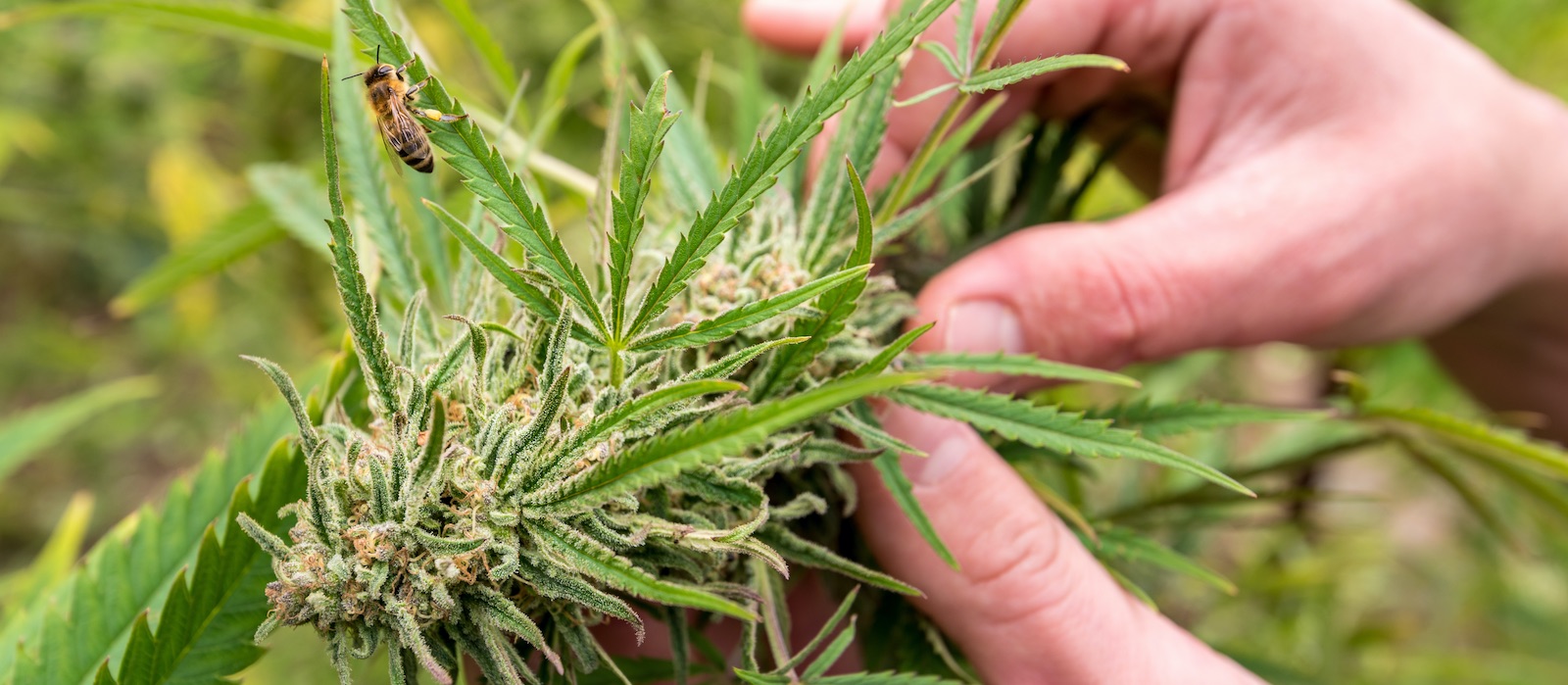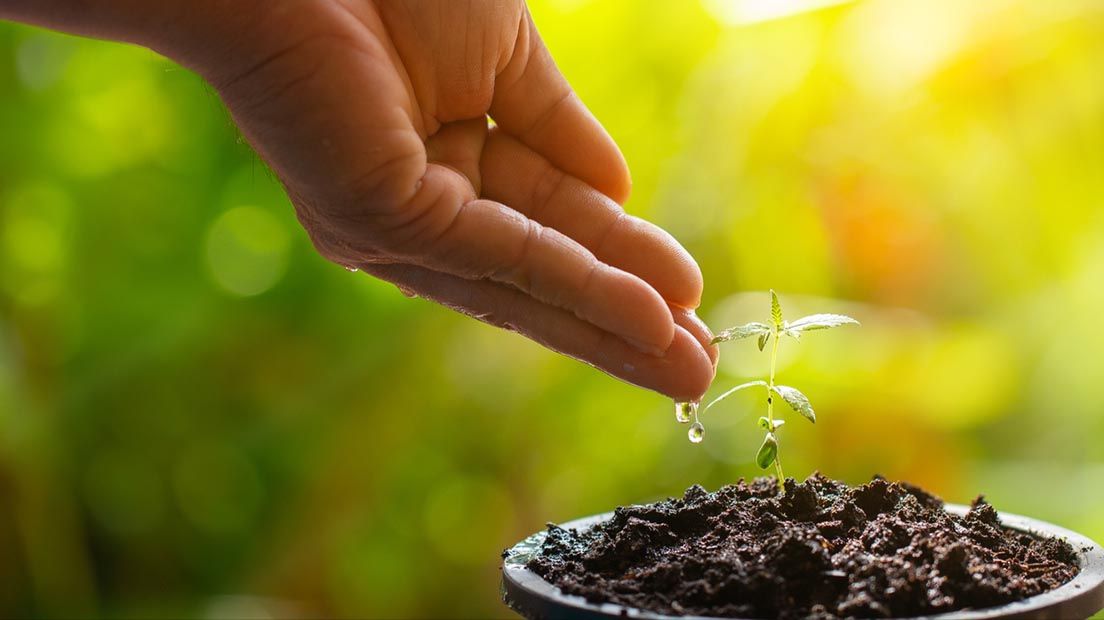What Is Veganic Cannabis Growing?
Veganic cannabis growing is an increasingly popular technique for those looking to produce healthier and better-tasting cannabis. The goal of veganic growth is to eliminate synthetic chemical inputs from the soil, as well as animal products.
Instead, plant-derived inputs are used as plant nutrition and fertility agents. This style of gardening is about harmony with nature, building off existing ecosystems to increase growth and productivity sustainably.
Another fundamental principle behind veganic gardening is soil sustainability: preserving its health so it can be alive and productive for generations to come. The focus here is on maintaining nutrient ratios naturally found in the soil – avoiding high levels of nitrogen like what you’d find in traditional fertilizers that can leech out over time or burn roots if applied wrongly.
Synthetic fertilizers should never be used in veganic cannabis growing; instead, composts made from plant matter and chemicals such as lime that are naturally derived are highly recommended for improving fertility without damaging the soil composition over longer periods.
Why Grow Vegan Weed?
Veganic weed is quickly gaining in popularity among home gardeners and experienced cultivators alike. This organic form of cannabis is renowned for its extra level of potency for numerous reasons, first and foremost being its much lower heavy metal content when compared to traditional organic cannabis – up to 1,000 times lower!
Furthermore, the plant's efficient nutrient metabolization means it can allocate more time and energy toward creating volatile compounds such as terpenes. As a result, veganic cannabis not only has potent effects but also boasts a higher concentration of terpenes than regular organic cannabis.
In addition to increased potency, vegan strains often contain higher levels of THC (the psychoactive compound) and CBD (the non-psychoactive compound). For example, some vegan strains have been known to contain up to 20% THC and 10% CBD.
What Are The Main Principles Of Veganics?
The concept of veganic gardening has been around since the 1940s, developed by horticulturalists Maye E. Bruce, Rosa Dalziel O'Brien, and Kenneth Dalziel O'Brien as a means to show that healthy crops could be produced without the need for laborious animal-based waste products as they are believed to damage soil health.
As such, animal matter has no place in this type of cultivation, which means that especially healthy soil is an absolute must. Veganic gardening relies on vegetable wastes being applied in the form of mulches and microbe teas, both of which help to maintain veganic nutrient levels in the soil.
The principles initially developed can also be used with other techniques such as hydroponic growing and composting indoors. What is important is that nutrients are made 100% bio-available at all times so plant growth remains optimal despite being cruelty-free. This requires constant monitoring and tests to ensure that everything is functioning correctly in terms of nutrient uptake for quick and healthy crop production.
Techniques For Veganic Growing
Veganic growing is a way to cultivate plants that focuses on avoiding animal products in the garden. It can help gardeners avoid the use of chemical fertilizers and pesticides, reducing negative environmental impacts.
Additionally, it provides health benefits for humans, animals, and plants alike. Vegetables, flowers, and cannabis seeds grown with veganic methods are richer in vitamins, minerals, and flavor than those grown using traditional non-organic techniques.
Choosing Nutrients For Veganics
When it comes to veganism, there is no need to break the bank for expensive nutrients. Instead, some widely available feeding systems are quite capable of providing all the necessary nutrients for your plants in an effective manner.
For instance, the Bio range from Canna contains absolutely no animal-derived products and has been proven to be a successful tool when it comes to veganic cultivation.
Additionally, various other products can also be incorporated into a veganic regime if needed or desired, even complete kits that are currently being developed that can make the process much easier and more convenient.
Importance of Soil Microbes in Veganic Growing
Veganic growing is a popular way of cultivating plants organically, without using animal-based products like manures or other additives. A healthy balance of soil and substrate microbes is essential for successful cultivation in this style, as these organisms help to ensure that vital nutrients reach plants to sustain and nourish their stage of growth.
Microbes can break down nutrients in amounts far easier for the plant to uptake through its roots, compared to synthetic fertilizers which can have uptake rates of just 20-25%.
In addition, synthetic fertilizers can cause damage to the existing microbe population in the soil structure by acidifying it and depleting nutrient levels. To counter this, veganic practitioners use beneficial microbes such as Actinobacteria species, Bacillus species, and Trichoderma; alongside bacteria, fungi, and cyanobacteria.
These organisms act as recyclers, ingesting decomposing plant matter and excreting broken-down minerals that can be easily absorbed by plants. By introducing key microbial populations into the soil, veganic farmers can achieve near 100% nutrient uptake for their plants.
pH Considerations In Veganic Gardening
When it comes to veganic gardening techniques, pH considerations are much less of a focus than with other types of cultivation. This is because most veganic gardens rely on organic composted materials as the main source of nutrients and these provide abundantly bioavailable elements over a wide range of pH levels.
Though veganic soil nutrients need to have an acceptable pH level of between 5.5 and 7.0, leaning more towards a slightly alkaline side, this range is far lower than what many soil techniques require.
Since maintaining the appropriate pH level can be difficult when it comes to veganic gardens, having easy access to accurate readings through a professional meter is essential for keeping track of how far the pH has dropped to make any necessary adjustments if needed.
More: How To Get Big Cannabis Yields Outdoors.
Aerating Soil & Water
Aerating soil and water is an essential part of the gardening process. Proper aeration of the soil/substrate and water can bring massive gains in productivity and plant health. Soil-rich microbes require oxygen to survive and reproduce, so introducing oxygen into the substrate will promote their growth.
Additionally, aeration improves air exchange which reduces compaction and increases the resilience of the substrate while improving its ability to retain moisture. This promotes better uptake of both water and nutrients, leading to increased root growth and improved overall garden performance.
More: The Ultimate Cannabis Fluxing Guide.
How to Grow Vegan Weed
Growing vegan weed can be an enjoyable and rewarding experience for cannabis consumers who want to make sure their weed is truly cruelty-free. The first step in the process of growing vegan weed is acquiring high-quality, vegan-friendly seeds.
This starts with seeking out breeders who specialize in creating 100% vegan strains, selecting landraces from different regions to produce a unique set of seeds. It's worth remembering that these seeds are usually only available to buy in regular form rather than feminized, so you may need to do some research first before sourcing them.
Once you've acquired your seeds, it's time to begin the actual growth process. Before planting your seeds, be sure to read up on proper soil techniques and monitor humidity levels often when germinating the cannabis seedlings.
Make sure the environment has an optimal temperature and make sure the marijuana plants get enough nutrient-rich fertilizer throughout the weed growth cycle as this will help ensure quality plant matter at harvest time. Lastly, don't forget about giving proper light exposure during oxidation—this helps release essential oils and terpenes that each strain is known for!
Is Veganic Cannabis Growing Worth It?
Veganic cannabis growing is becoming an increasingly popular choice for people seeking a more sustainable and ethically sound way to produce their cannabis. It involves growing the plant in nutrient-rich soil and water without any synthetic chemicals, animal products, or byproducts.
This means no organic fertilizers, pesticides or herbicides have been used in the process of cultivating this type of cannabis. Not only is this better for the environment, but it also provides exceptional quality cannabis that hasn’t just fed off artificial substances.
What makes veganic cannabis so special is that it also contains higher terpene concentrations which helps enhance aromas and flavors as well as increase its therapeutic effects. By avoiding the use of animals and byproducts, veganic growers can provide a superior product with superior results.
With all these benefits taken into consideration, we would say that yes, veganic cannabis growing is worth it; however, due to its increased labor and cost-effectiveness requirements, newcomers may struggle with this method.
Still, if extra time and dedication can be put aside for this alternative trend, then veganic cannabis could be a viable option to consider further down the road depending on each individual's lifestyle preference.


 Français
Français 

